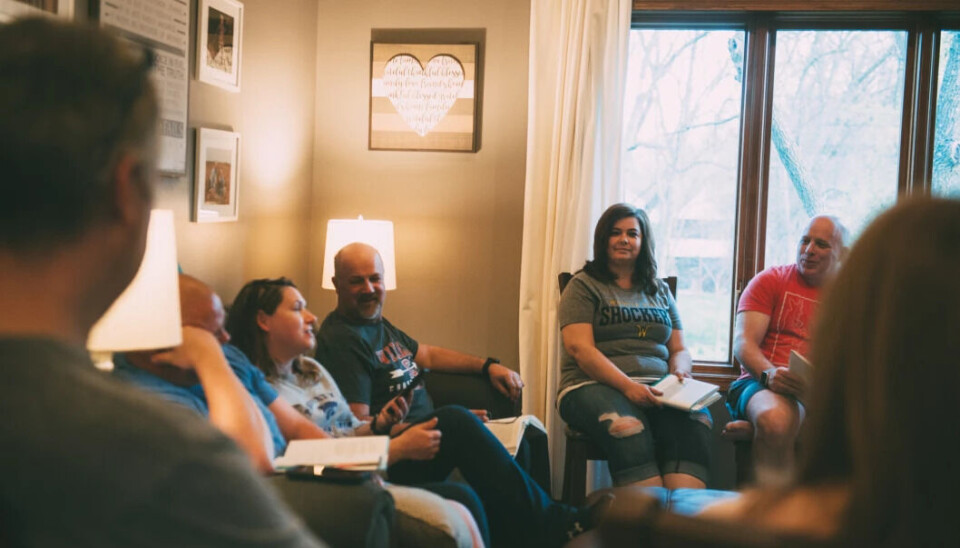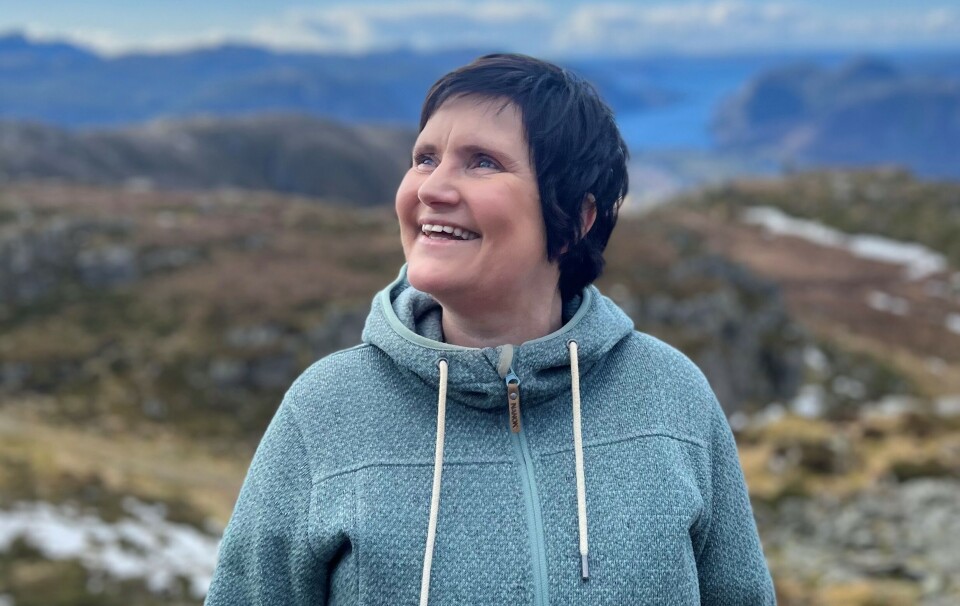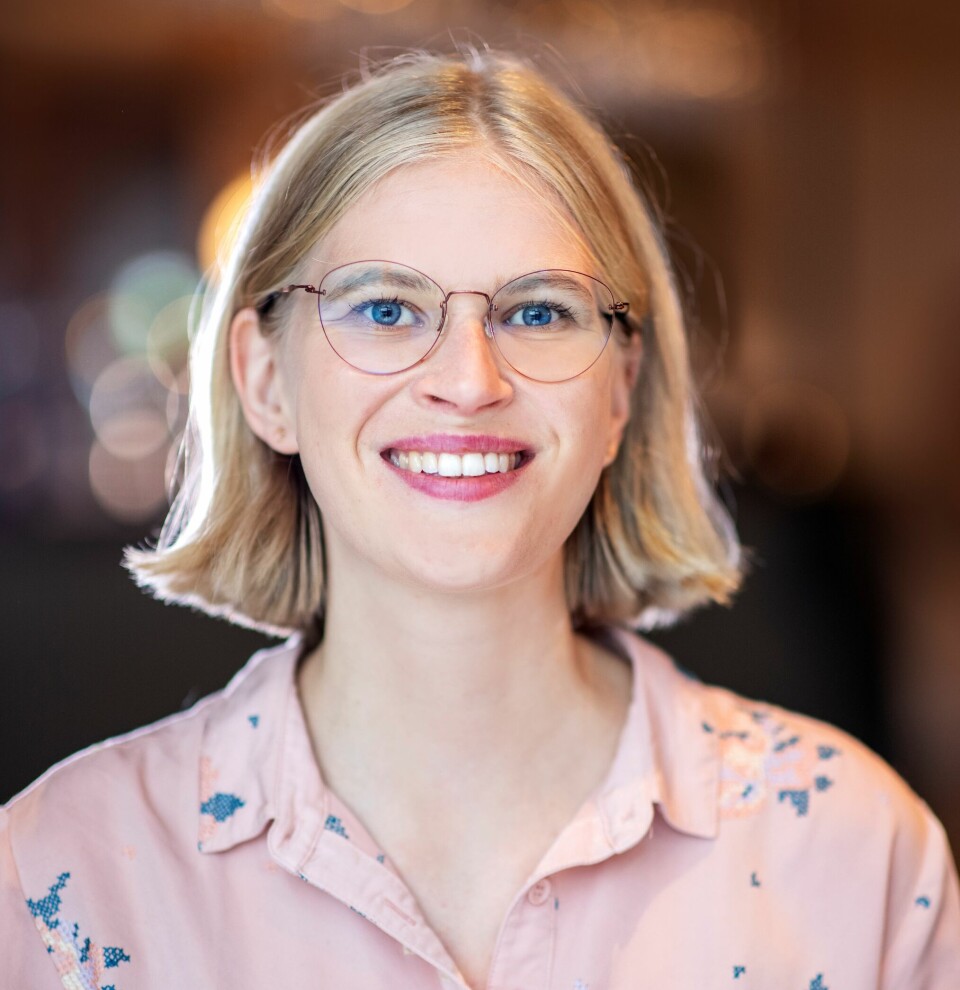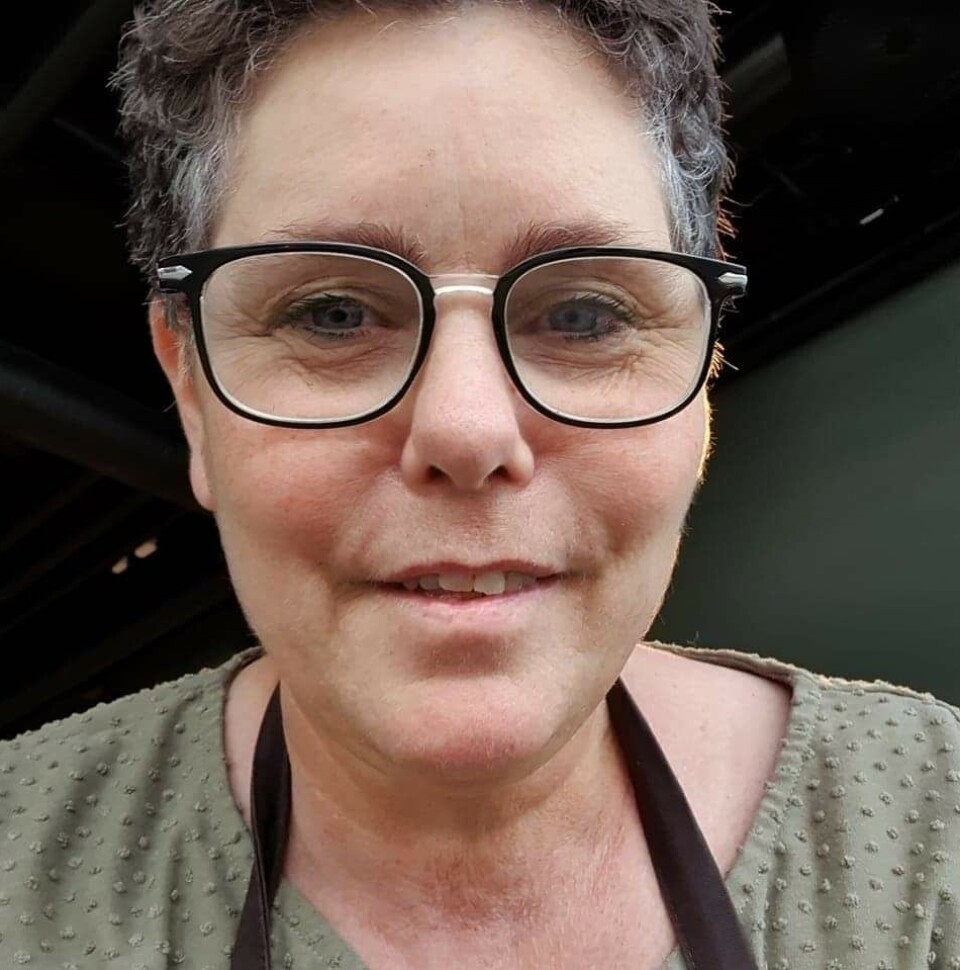THIS ARTICLE/PRESS RELEASE IS PAID FOR AND PRESENTED BY the University of Stavanger - read more

Participating in a reading group can improve cancer patients' quality of life
Open discussions brought on by reading fiction, a sense of belonging, and a feeling of autonomy are all reasons why participating in reading groups may be positive for people with cancer.
"Your mind is so tired after undergoing cancer treatment. I began to wonder if I would ever have a functioning brain again," Elin Torkelsen says.
Today, Torkelsen is back at work. Her mind is functioning the way it used to. But in 2020, she was one of 37,000 Norwegians who received a cancer diagnosis. With it came the brutal treatment. Radiation. Chemotherapy. Until she was declared cancer-free in 2021.
But then what?
"Even if the cancer is gone, you are still affected by the treatment. As a cancer survivor, you are offered numerous courses in diet and exercise. But I was also worried about my cognitive health," she says.
An avid reader, Torkelsen was intrigued when she heard about a 'Shared Reading' group for cancer patients at her local community centre run by the Norwegian Cancer Society. Her decision to join the group was easy.

Developed in the UK
Shared Reading is a concept developed by Jane Davis at the UK charity The Reader. The method is simple: A group of people, one of whom is a certified 'Reader Leader', reads a text aloud, and then the reading is followed by a conversation, guided by the leader.
Although the method has been used not only in schools and libraries, but also in health clinics, prisons and addiction treatment, Shared Reading is not therapy.
Different from many traditional literature groups, the participants in Shared Eeading groups are not encouraged to engage in traditional literary analysis.
Instead, the focus is on the readers’ experience with the text.
As The Reader writes in their description of Shared Reading: “Everyone experiences the text in their own way, but the literature provides a shared language that can help us to understand ourselves – and others – better.”
Arts and culture can be beneficial to health and well-being
"I was curious to find out how cancer patients experienced Shared Reading," Tine Riis Andersen says.
She is a PhD student in literature at the University of Stavanger.
"We know that cancer and cancer treatment can have major consequences for patients' lives, even after they have finished treatment. Although the World Health Organization points out that arts and cultural experiences can have an impact on health and well-being, there has been little focus on the mental health of people who are or have been in cancer treatment," she says.

Andersen’s desire to conduct research on this led her to establish the Norwegian Shared Reading groups specifically for cancer patients.
Could talk about what is difficult for others to understand
One of the participants, Siv Sørbø, says that she joined the local group out of curiosity.
"I also thought it was quite exciting to participate in a research project. Now I just want to tell the whole world about it. Everyone should have this opportunity," she exclaims.
She says that she left the meetings with more energy, and a feeling of being part of a community with others in the same situation.
"Being a cancer patient is a unique experience,
which is not always easy to talk about with relatives or friends. In this
group, literature opened up the opportunity to talk about things that are
difficult for others to identify with or understand," she says.
In-person and digital meetings worked equally well
In order to gain knowledge about how the participants experienced Shared Reading, Andersen created both in-person groups at the community centre Vardesenteret in Stavanger, and digital reading groups.
12 cancer patients between the ages of 23 and 69 joined the study. They were all women, although both Andersen and the participants would have liked to have had male participants also.
The 12 women were undergoing various stages of treatment. Some were declared cancer-free, others were undergoing treatment.
The participants were asked to join the reading groups, where they were invited to meet once a week for four months. They also shared their reflections of the sessions in writing, on audio recordings, and in a questionnaire.
At the end of the project period, Andersen conducted a focus group interview with the participants. The audio recordings and focus group interviews provide the basis for her study.
For Elin Torkelsen, being part of the reading group was such a positive experience that she decided to take part in both the in-person and the digital groups.
"It was lovely to meet other people in the comfortable surroundings at Vardesenteret, but the digital group also worked really well. The experiences were quite similar," she says.
Room to talk and think
Andersen was also involved, both as a participant and observer in the groups.
"I noticed that the participants gave each other room to talk and think, and they listened to each other. If a participant had a lot on their mind, the others would listen, and allowed the person to speak without interrupting. It was as if the shared experience they had as cancer patients had an influence on the mood and tone of the group," she says.
The participants expressed that they could come to the sessions and just be themselves.
"There was a respectful tone between them, which made it feel safe for them to share their perspectives and thoughts, both about the texts and about experiences they wanted to share from their own life," Andersen says.
Short stories and poems led to reflection
The lack of performance-pressure was important, Elin Torkelsen believes. The groups were accommodating for the fact that some of the participants would be strongly affected by their illness.
– Some would attend, but didn’t have the energy required to join the discussions, which was perfectly fine. Some preferred that the text had a linear narrative, as it was difficult to keep up if the story was too demanding. Sometimes the reading leader had to repeat the text, since we could find it hard to concentrate. It was also really nice that the texts were so short and that they were read aloud. In normal reading circles, you read yourself, preferably thick novels. In these groups, you were allowed to just listen, she says.
And through the literature, came the stories.
– One of us could have a certain reaction to what we read, and there would be room to talk about our thoughts and reflections. It was essential for the experience that everyone was in the same situation. We all had our stories, both as patients and in our lives outside. We knew that the stories we shared were kept between us.
The literature opened up for conversations
Although the participants could share from their own lives, and an important aspect of the research project is that sharing literary experiences can be beneficial for health and well-being, Shared Reading groups are not therapeutic in the traditional sense.

Siv Sørbø believes that the fact that the conversations revolved around literature made the conversations more open and more exploratory than other groups.
"We had such different interpretations of the texts we read, and we would touch on very existential themes in the conversations. The literature provided openings and created many avenues into a range of conversations. This was a very different experience to the more typical groups, where you are there to 'talk about having breast cancer', dealing with more specific topics related to treatment, emotions, surgery and so on," she says.
Participant Torkelsen says that although this was not therapy as such, reading these texts would give her new and healthier thoughts.
"Many of the texts dealt with themes we could relate to our own upbringing, and nature was a recurring theme. There were many oak trees. I was inspired by the thought of nature taking its course, slowly, over time. It inspired me to observe how things were, and let go, in a way," she says. "A lot of the texts were quite funny. A recurring theme turned out to be about lonely women who were left alone at home when their husband went to work. A lot of us recognised that. You can be quite lonely, also after undergoing cancer treatment. This was another reason why these groups were so important to me – it is nice to know that somebody needs you to be there."
Related to self-determination theory
Andersen’s analysis of the interviews and voice recordings can provide us with an understanding of why the cancer patients benefited so much from being part of reading groups.
"There are three important factors that the participants point to: The feeling that they were of use, that they were part of a community, and that they were doing something they enjoyed," she explains.
This can be linked to the so-called self-determination theory. It is a psychological concept that states that we all have a need to be independent, to feel competent, and to have positive relationships with other people.
"For cancer patients, everyday life is often characterised by the opposite. Participating in Shared Reading groups can therefore be an important contribution in giving people these important experiences again," Andersen says. "These findings may not be unique to cancer patients. At the same time, their shared experience as patients was important for the participants. They appreciated a safe space where they could just be who they are, where they got a break from life outside, and where they felt safe."
Elin Torkelsen has later participated in Shared Reading groups at the local library, where everyone can join.
"I enjoy these groups too. However, the groups where we all shared common experiences was truly unique," she says.
A way to process the illness
Elin Torkelsen did eventually find that her mind had returned to normal. She believes that the reading group was essential in this process.
"It is a bit like exercise, really. We hear a lot about how important it is to gradually get the physical strength back through exercise. I strongly believe that the same applies to the brain. You have to start small and build up gradually. The reading group helped me with that. Now I feel just like I used to before I got ill," she says.
She became so intrigued by the literature she encountered that she would google the authors when she came home and look up their other works.
Siv Sørbø was inspired to write poems of her own, which she believes helped her to process her illness.
"I hope that other communities and municipalities become aware of the value in Shared Reading and start organising it. I don’t think Shared Reading is only of benefit for cancer patients. I am sure that people who have other illnesses, or who struggle with other things, would take great pleasure in participating in reading groups," she says.
Reference:
Andersen, T. R. Regaining autonomy, competence, and relatedness: Experiences from two Shared Reading groups for people diagnosed with cancer, Frontiers in Psychology, vol. 13, 2022. DOI: 10.3389/fpsyg.2022.1017166

This article/press release is paid for and presented by the University of Stavanger
This content is created by the University of Stavanger's communication staff, who use this platform to communicate science and share results from research with the public. The University of Stavanger is one of more than 80 owners of ScienceNorway.no. Read more here.
Related articles
-
How the Vikings protected themselves from attacks
-
Like tuning forks in space: A final pure tone reveals the mysterious interior of neutron stars
-
Could scented books encourage more kids to read?
-
Artificial intelligence could improve the quality of life for more patients following a stroke
-
Cathedral's lost treasures uncovered
-
Norwegian researchers can contribute to changing the Big Bang theory




































